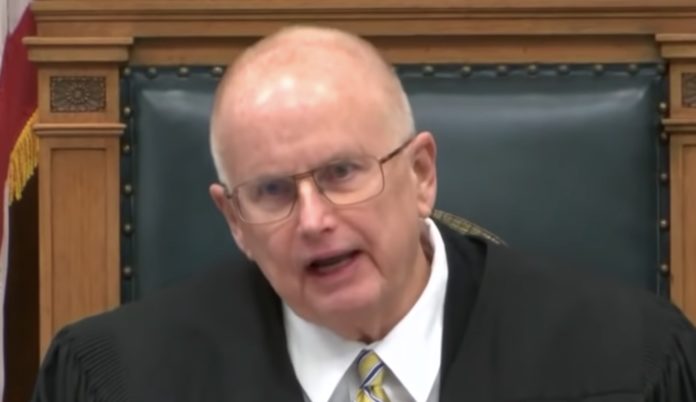OPINION | This article contains opinion. This site is licensed to publish this content.
Judge Bruce Schroeder made a comment in the trial of Kyle Rittenhouse that has cast doubt on one of the main charges, Fox News reports.
While covering a motion filed in the case, Schroeder explained that he had “spent hours” with the Wisconsin gun law.
Despite this considerable amount of time, Schroeder still could not state with certainty what it means in this case.
This statement could effectively remove the misdemeanor gun possession count.
“The unlawful possession of the gun has been a prominent fact cited not only by the prosecutors but the press,” Fox News reports.
“A close examination of that provision reveals ample reason to question not just its meaning but its application to this case,” the report adds.
Prosecutor Thomas Binger even appears to be learning about the governing law during the trial.
At one point, Binger asks Rittenhouse why he did not just purchase a handgun rather than an AR-15.
Rittenhouse explained that he could not legally possess a handgun at his age.
In apparent disbelief, Binger seems confused that the law allowed him to have an AR-15 but not a handgun.
Nonetheless, Rittenhouse understood this fact and said yes.
Binger moved on from this line of questioning after surfacing information that seemed to help the defense’s case.
More from Fox News:
The exchange was all the more baffling because it drew attention to the fact that one of Binger’s alleged “victims” was an adult named Gaige Grosskreutz, who also decided to bring a handgun to the protests and pointed his .40 caliber Glock at the head of Rittenhouse when he was shot in the arm.
However, the most damaging moment came outside of the presence of the jury when the judge drilled down on the law. He told the prosecutors, “I have been wrestling with this statute with, I’d hate to count the hours I’ve put into it, I’m still trying to figure out what it says, what’s prohibited. I have a legal education.” He added that he failed to understand how an “ordinary citizen” could understand what is illegal.
— Advertisement —
It is hard to understand how the count could be given to the jury without a clear understanding of what it means. It is also hard to instruct a jury on an ambiguous statute.
Criminal laws are supposed to be interpreted narrowly. It is called the “rule of lenity” and has been around in the English system for centuries. For example, in 1547, the court was faced with a law making it a felony to steal “Horses, Geldings or Mares.” Given the use of plural nouns, the court ruled that it did not apply to stealing just one horse.
It is not clear that the statute actually bars possession by Rittenhouse.
The problem with the Wisconsin statute is not a problem of pluralization but definition. It is not clear that the statute actually bars possession by Rittenhouse. Indeed, it may come down to the length of Rittenhouse’s weapon and the prosecutors never bothered to measure it and place it into evidence.






